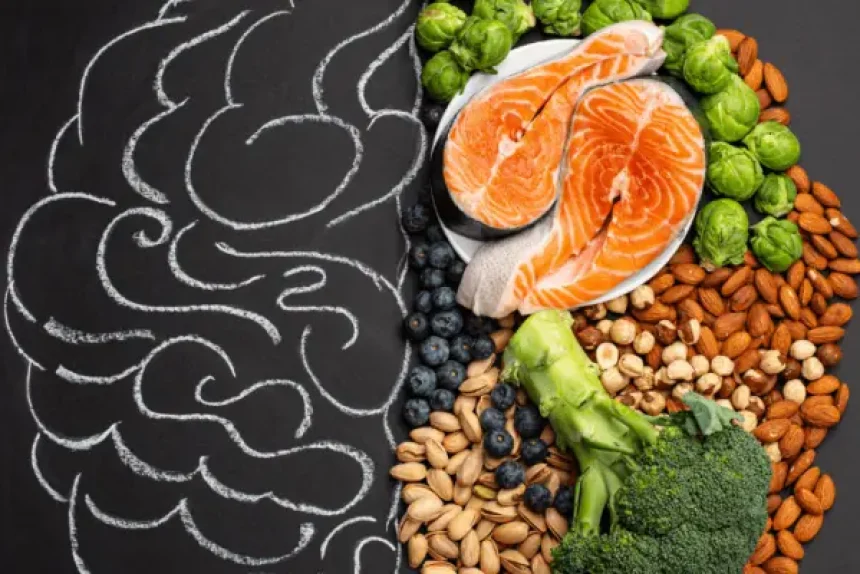Eating high-quality foods that contain essential vitamins, minerals, and antioxidants nourishes the brain, protects it, and provides much-needed fuel. A nutritious diet rich in brain foods is essential for maintaining optimal mental performance during exam preparation. Incorporating foods into your diet that supply key vitamins, essential fats, and high-quality protein is crucial to keeping your brain healthy and primed for success.
Recommended Foods to Eat for Optimal Cognitive Function
Eat Smart by Including These Nutrients in Your Diet
1. Omega-3s
Omega-3 fatty acids enhance learning, memory, cognitive well-being, and blood flow in the brain. They are excellent for exam preparation. The best sources of Omega-3s include:
- Oily, cold-water fish such as wild Alaskan salmon, trout, sardines, mackerel, and herring
- Vegetarian sources such as hemp protein, flax seeds, avocados, and walnuts
2. Antioxidants
Dark-colored fruits and vegetables are packed with antioxidants, which can improve brain aging and memory.
- Dark, leafy greens (rich in vitamin C and folate) help reduce age-related memory loss and improve blood circulation to the brain.
- Berries, especially blueberries, contain flavonoids, which support better memory and cognitive function.
- According to Harvard School of Public Health, antioxidants are most beneficial when obtained through whole foods rather than supplements.
3. Complex Carbohydrates
The brain requires twice the energy of other cells in the body. Since brain cells run on glucose, they need a steady supply of energy. Complex carbohydrates provide a slow, sustained release of glucose, preventing energy crashes.
Best sources include:
- Whole grains
- Chickpeas
- Oats
- Sweet potatoes
- Black beans and legumes
4. Quality Lean Protein
Protein is essential for sustained energy and mental alertness. Ideal sources include:
- Lean meats
- Eggs
- Soy foods (soy milk, soy protein meat substitutes)
- Low-fat milk
5. Healthy Fats
Healthy fats support memory function and vascular health. Good sources include:
- Avocados – Rich in monounsaturated fats that help improve blood cholesterol and cognitive function
- Olive oil – Extra-virgin olive oil contains protective antioxidants
- Nuts, especially walnuts – Provide omega-3 fatty acids that support brain function and reduce inflammation
Healthy Snack Ideas
- Dates with peanut butter
- Raw cashew nuts
- A few squares of dark chocolate
- Celery and hummus
- Chopped apple with almond butter
- Dried apricots
- A handful of trail mix
- Roasted chickpeas
- Avocado on whole-grain toast
Foods to Avoid to Prevent Slow Cognitive Function
The Usual Culprits
1. Sugary Drinks
High-fructose corn syrup, a common ingredient in sugary drinks, can cause brain inflammation and impair memory and learning.
2. Refined Carbs
Consuming refined carbohydrates, such as sugar and highly processed grains, can lead to poor memory and decreased mental alertness.
3. Highly Processed Foods
Processed foods high in sugar, unhealthy fats, and salt—such as chips, sweets, instant noodles, microwave popcorn, and store-bought sauces—can contribute to weight gain and excess fat around organs, which is linked to a decline in brain tissue.
4. Foods High in Trans Fats
Artificial trans fats, often found in margarine, frosting, snack foods, cakes, and cookies, have been linked to impaired memory and cognitive decline.
5. Excessive Alcohol
While moderate alcohol intake may have some health benefits, excessive alcohol consumption can negatively impact the brain, causing:
- Memory loss
- Behavioral changes
- Sleep disruption
Brain-Boosting Facts
- The Mediterranean Diet has been associated with better brain health and cognitive function as people age.
- Whole foods are better than supplements—natural ingredients provide more effective health benefits.
- Tea and coffee may offer cognitive benefits beyond just a short-term concentration boost.
- Increased alertness
- Improved mood
- Sharpened concentration
- Research published in The Journal of Nutrition suggests that higher caffeine consumption is linked to better mental function scores.
- Walnuts contain alpha-linolenic acid (ALA), a type of omega-3 fatty acid that helps lower blood pressure and improve cognitive test scores.
- Dark chocolate contains antioxidants and flavanols, which protect brain cells and improve memory.
And… Remember to Stay Hydrated!
Drinking enough water is crucial for mental clarity, energy, and memory retention. Staying hydrated can help reduce test anxiety and improve overall cognitive performance.
References
Score at the Top – Brain Food: 5 Best Foods to Eat Before a Test
Harvard Health – Foods Linked to Better Brainpower
Mayo Clinic – Maximize Memory Function with a Nutrient-Rich Diet
FAQ
What are the best foods for optimal cognitive function during the NBCOT® exam preparation?
The best foods for optimal cognitive function include Omega-3s from fish like salmon and non-fish sources like flax seeds and walnuts, antioxidants from dark leafy greens and berries, complex carbohydrates such as whole grains and sweet potatoes, quality lean protein like eggs and soy products, and healthy fats found in avocados and olive oil.
Which foods should be avoided to maintain cognitive sharpness while studying?
To maintain cognitive sharpness, avoid sugary drinks, refined carbs, highly processed foods, foods high in trans fats, and excessive alcohol consumption. These can impair memory and learning by causing brain inflammation and weight gain.
Can healthy snacks aid in improving exam performance and how?
Yes, healthy snacks can improve exam performance by providing sustained energy and nutrients essential for brain function. Recommended snacks include dates with peanut butter, raw cashew nuts, dark chocolate, celery and hummus, chopped apple with almond butter, and walnuts.
Why is staying hydrated important during exam preparation?
Staying hydrated is crucial as it helps maintain alertness and cognitive function. It also reduces test anxiety, ensuring that you’re in the best mental state during exam preparation and while taking the exam.
Are there any specific dietary patterns recommended for better brain health?
The Mediterranean Diet is associated with better brain health and the maintenance of cognitive abilities. It emphasizes the consumption of real ingredients like whole grains, nuts, fruits, and vegetables. Additionally, natural sources of caffeine such as tea and coffee can improve mood and concentration.








